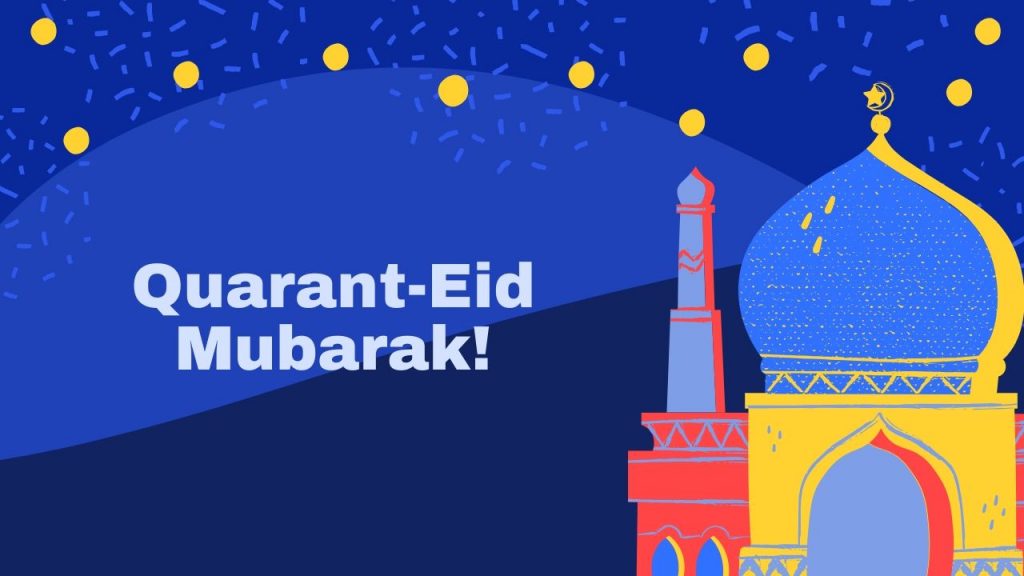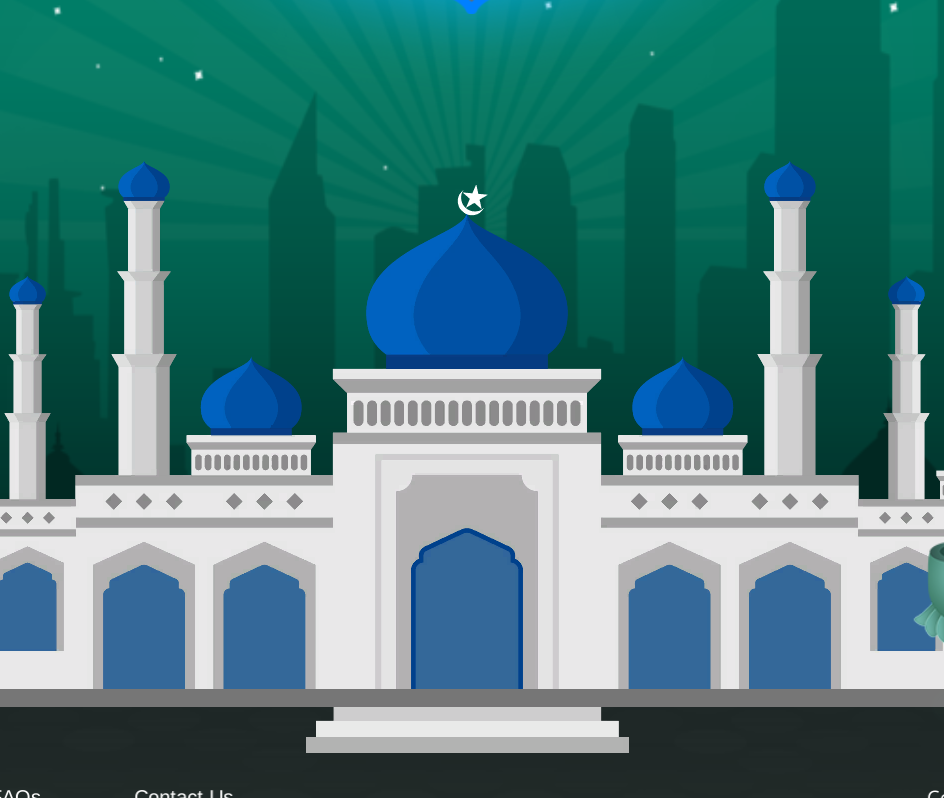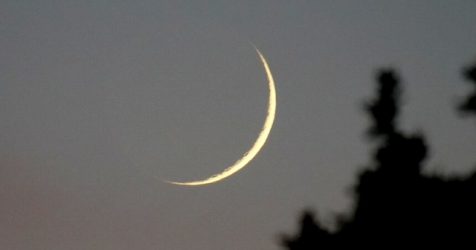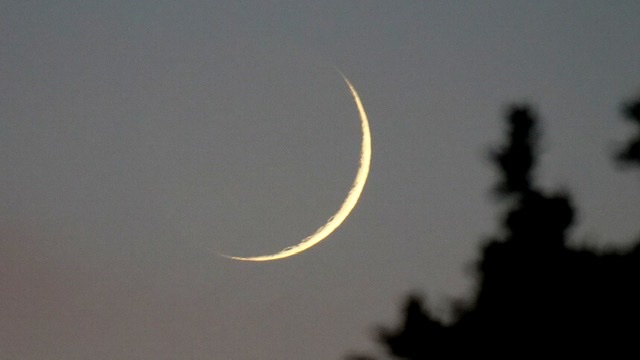
Muslims the world over celebrated Eid al Fitr last Sunday, a rare unity with only a few countries celebrating on Monday. This was after experiencing the most unusual Ramadan in living memory. Fasting is for God alone, but breaking the fast is often a communal activity. Eid is almost unthinkable without Eid prayers at the mosque and feasting with family and friends. Without this key social aspect, many Muslims have felt bereft this past month. Financial uncertainty and an inability to visit sick or dying relations during lockdown have all taken their toll. Yet, from darkness comes light and many people have been using this extraordinary time to refocus.
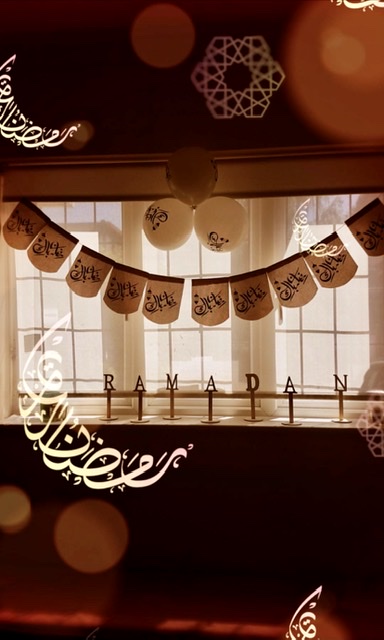
In my last blog, I wrote about how isolation could be productive. However, throughout history, isolation has also been used as a tool for spiritual regeneration. Rather than connecting with other people, it is a chance to connect with God. It was a custom of Prophet Muhammad (pbuh) to spend long periods of time in Cave Hira by himself, contemplating the world and the meaning of life. In Ramadan 610 CE, when the Prophet (pbuh) was 40 years old, it was in this cave that Angel Gabriel first brought the first revelation from God, “Read”. It is one of the reasons that Ramadan is also known as the month of the Quran. Although not possible this year, Muslims still practise ‘i’tikaaf’ or seclusion in mosques during the last 10 days of Ramadan. The idea is to cut off from worldly affairs and concentrate on the spiritual. The Sufi concept of ‘khalwah’ meaning seclusion is similar: to leave every day life with the aim of connecting with the divine through ‘dhikr’ (remembrance) of God. Prophet Muhammad (pbuh) said, “One hour of contemplation is more valuable than a year of worship.” (Suyuti, Jamiu’s-Saghir, 2/127)
Without such introspection and a desire for self purification, religion can be reduced to a series of rituals rather than leading to a transformation of character.
Cutting out extraneous activity during this lockdown has helped us focus on the essentials: food, faith and family. Even the food part has not been all-consuming because of Ramadan. Eating or cooking can be a distraction from boredom, but fasting frees us to spend our time in other ways – until iftaar time of course! We really missed our get-togethers with friends, but there was a calmness and peace without frantic preparations for parties. Instead, people were even more conscious about dropping food to neighbours or helping the vulnerable in their community. Our local mosque has handed out hundreds of food parcels to the needy and vulnerable all month, regardless of religion. The community as a whole is generous – Muslims gave £100 million to charity in Ramadan alone. Without frantic mornings and long to do lists interfering with worship, this year we finally had a chance to breathe and take control of our spiritual state. Mosques and Islamic centres have really risen to the challenge providing us with a plethora of online courses, podcasts and religious reminders from the West Coast to Woking – sometimes overwhelmingly so. Tafseer of surahs, knowledge of the 99 names of Allah, how to improve prayer, zakat…in terms of accessing the outside world from inside, there really has been no better time in history to be isolated.
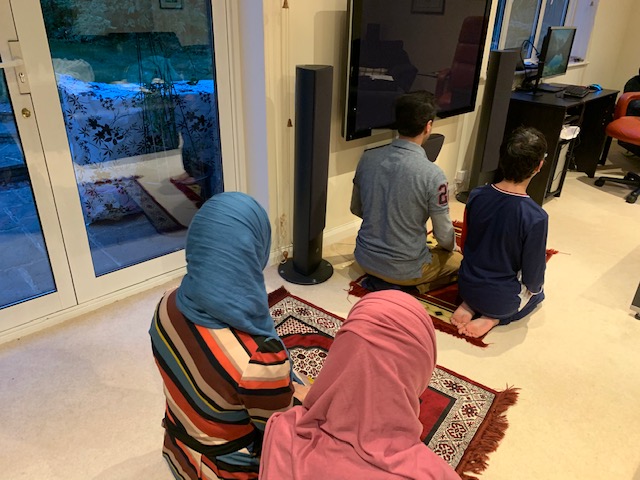
An unexpected outcome of the mosques being closed is that we have been praying tarawih as a family. In other years, tarawih was done individually — my husband at the mosque, me at home with the kids who would need to wake up early for school. Praying together has been a highlight for us all. Eid prayers were harder: we have a tradition of meeting family and friends outside our local mosque for Eid prayers and taking a picture outside its historic dome afterwards. Over the years, this picture has been an amazing record of the children growing and our local community expanding. But ever creative, one of our friends asked us all to take family pictures in the garden to create a group collage to commemorate this socially distanced Eid.
So we listened to the online ‘takbirs’ and sermon, offered Eid prayers at home, exchanged greetings and wore nice clothes. We had Zoom calls with family and friends, but the joyfulness of celebrating together was missing, as was the tradition of visiting one house after another and eating far too much delicious food. Ramadan in lockdown had its benefits, in many ways it was one of the best for spiritual improvement. Eid in lockdown on a sun drenched Bank Holiday weekend, was hard.
But at a time when so many people are anxious or grieving, I thank Allah for his many blessings and remind myself that the believers need to be patient, as this trial, too, shall pass.
Eid Mubarak!
